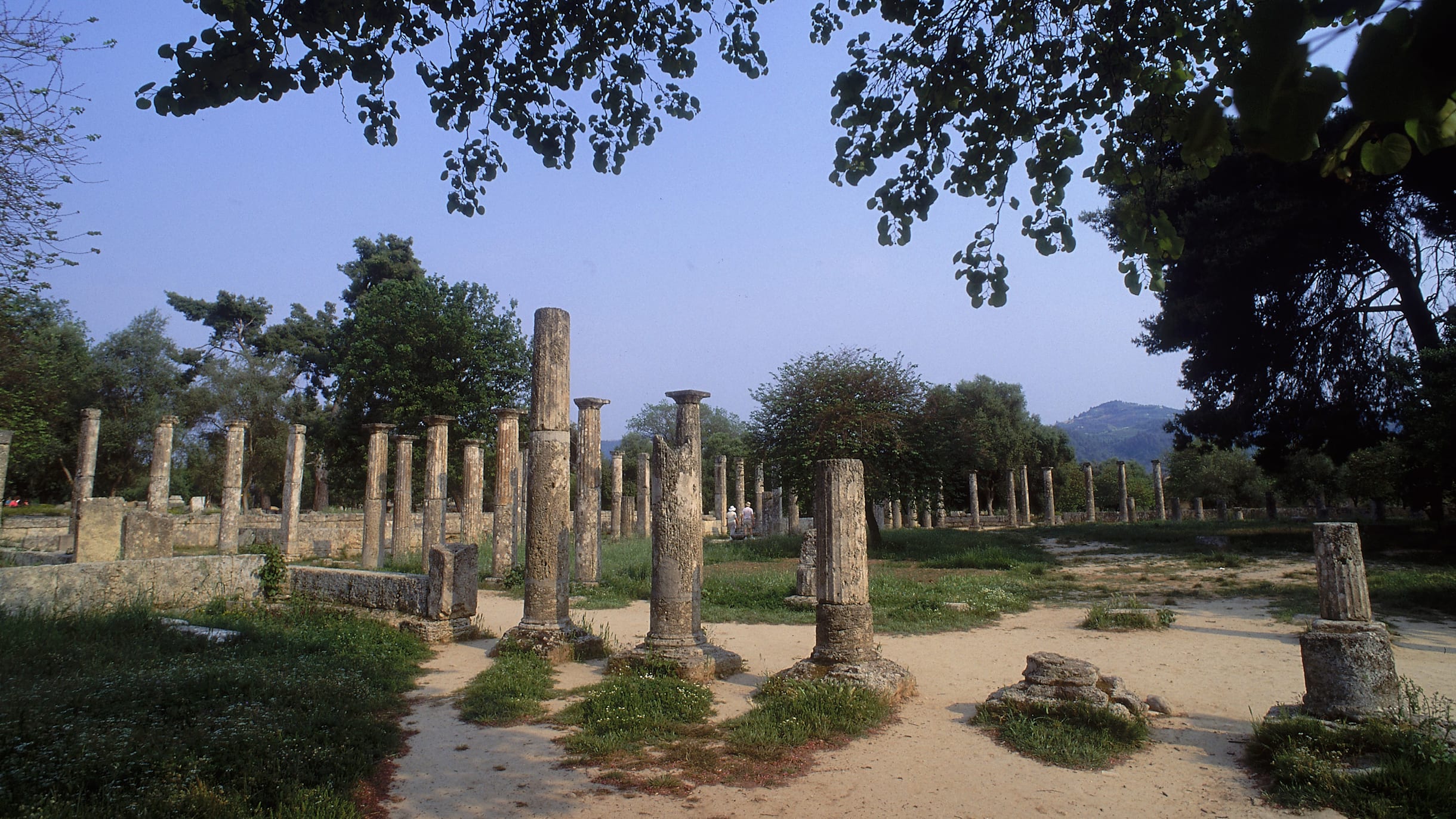
The end of the Ancient Games
For over one thousand years, the Greeks, and later the Romans, met at Olympia to celebrate the festival in honour of Zeus and ensure that the Games remained an important event. We now know that the Games were still being organised in the 4th century AD.
In 393 AD, the Christian emperor Theodosius I forbade the celebration of pagan cults, which included the Games. Nonetheless, the popularity of sports contests and cultural festivities continued in many Greek-influenced provinces of the Roman empire as late as the 6th century AD.
Olympia, until its rediscovery in the 19th century
Following Theodosius’ decree, pagan cults began to disappear gradually and the site of Olympia was abandoned. Earthquakes destroyed the edifices and their ruins disappeared gradually under the earth and sand.
The Stadium at the site of the Ancient Olympic Games in Olympia in Greece.
There were no longer any visible traces of the site. Thanks to the writings of ancient historians, the memory of the Games and their place in the Greek world was not totally forgotten. The Games were known to have existed, but the knowledge of their exact location had been lost.
In 1776, the English traveller Richard Chandler discovered the site of ancient Olympia. The principal research digs were carried out a hundred years later by German archaeologists.
Today, archaeological digs have allowed us to discover the past glory of the Panhellenic Games and the significance of Olympia.